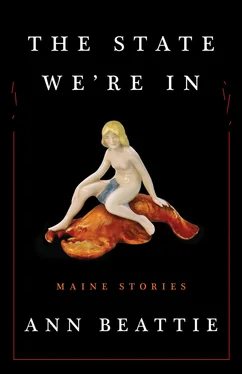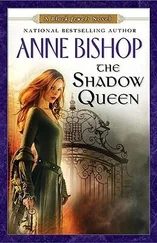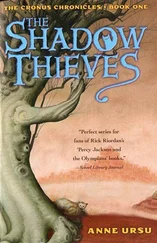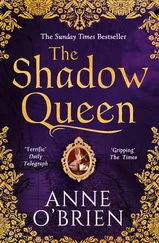“I would have asked why he brought it up. Because stereotyping must have been underlying what he said. It was something of a non sequitur, I thought. Not that I was put here to offer guidance to the young.”
He dialed Ted’s number again. I knew that if Ted picked up, my husband was going to ask him who, exactly, he’d been calling gay. There’s nothing my husband likes more than proving me wrong.
But the phone rang unanswered. And when my husband’s phone finally bleated its “Yankee Doodle” ring (totally obnoxious, which, my husband said, was the point) and he answered, I was as surprised as he that it was not a guilty Ted, it was Barbara Gillicut, telling him he’d brought her luck. She’d gotten her first offer on the house. Her voice was almost girlish, he told me afterward — she sounded like a different person. She told him the story about the urn on the table before saying good-bye. “Oh god, is that cremains?” the prospective buyer said. Barbara was choking with laughter as she repeated this. No, she’d told the woman. It was the ashes of the owner’s drawing pad. Her client had been trying for years to make a perfect drawing of a stone. It was the reason he’d bought the house, in what he always referred to as “the countryside.” He had several stones he placed on the tabletop every day (“My god, he puts them to bed in a little satin drawstring pouch, like he’s settling babies in their crib!”). He worked on his sketches night and day, and then when the pad was filled with his drawings, he… well, what did he do? Even Barbara Gillicut wasn’t there when he must have done something. Had he showed all the deficient drawings to the Elvises? Poured himself a huge glass of cognac and drunk it down, weeping? But after that moment — I’ve come to believe life is defined in just such moments — he made the only fire he ever had in the fireplace. He’d told her explicitly; he’d said he hadn’t lit a fire since Cub Scouts — and sent the sheets of paper up in flames. Only the spiral binder, singed, remained, and he said he was going to hang it on the chain that dangled from his porch fan — he’d kept his house outside of Boston, which turned out to be a good thing — and every time he turned on the fan, he’d remember what he called “the most humbling undertaking of my life.”
In Barbara Gillicut’s opinion, artists were right on the edge of insanity every moment. It seemed as if it must make some cosmic sense that she was the person from whom he’d bought his house, and she was the person he’d brought in to sell it, as well as the person to whom he told this story. Since she liked to remark on the obvious, she told me she was glad he hadn’t burned the house down along with his drawings. He’d shoveled out the fireplace when the ashes were cold. He’d put them into his beautiful urn — an antique, handed down from his grandmother. (How many conversations had she had with him? We’d never seen her dropping by.) Then he’d listed the house with her, only a year or so after he bought it, and left with another man for Reykjavik (“Imagine! He didn’t like these winters and he decamped for Iceland!”) and now she was going to have the pleasure of giving him a huge thumbs-up across the miles, because she was very optimistic. She’d seen it in the spark of the woman’s eyes that she wanted the house, and women’s opinions prevailed.
The red-haired lady was hospitalized after she fell in the street and a taxi almost ran over her. Just before her mad dash (who could account for her actions?) she’d accused a black dog on a leash of being the devil, an opinion that had been strenuously objected to by the dog’s owner. The dog’s name was Major Maybe, and his story was better known than the red-haired lady’s. The breeder had called the dog Major, and the family who got him tried to name him something similar in order to avoid confusing the dog (they’d tried such names as Mark and Mason). However, the dog would not respond to any name beginning with M until the family’s four-year-old daughter, who talked to her dolls a lot and told them that maybe they could go to Barneys and maybe they would go to the park and maybe they would get a cookie if they were good… as you will already understand, little Corey Leavell came up with the only new name the dog would accept. Later, it was thought funny to call him Major Maybe.
My roommate during this time was an acting student named Eagle Soars. His English father had married an American who claimed her great-grandmother had Indian blood. Eagle Soars had been Eddie in school, but his birth certificate really did give his first and middle names as Eagle Soars (his last name, which he later dropped, was Stevens), and by the time he was twenty, he thought the name might be useful if he intended to act. He made extra money by giving Major Maybe his four p.m. walk down to Tenth Avenue, then up either Twenty-first or Twenty-second Street, down Eighth Avenue, then down Twentieth to home.
In those days, Chelsea was more of a mom-and-pop neighborhood. No art galleries, just a few sex clubs way west. There was a nice florist called Howe. I sometimes bought a single flower to take back to the apartment and make part of my little altar to the far left side of the deep windows that overlooked the backyard: a picture of my mother and father on their wedding day, in a little heart-shaped frame; my sister lying on a fur rug, looking dazed, the day they brought her back from the hospital; a badly faded snapshot of my first pet, Doris the cat; the deteriorating wrist corsage I’d worn to the senior prom, inside a Plexiglas box; one of my wisdom teeth dangling from a chain around the casement window handle. These things were grouped together in solidarity with Eagle Soars, whose own display featured a double photo frame showing both his high school graduation picture and a snapshot of the boy he had a crush on in high school, with a big bandage across his face after reconstructive surgery on his nose (bicycle accident); a pencil sharpener with a tutu-skirted hippopotamus in second position; a teaspoon stolen from the Plaza; the framed eviction notice from his previous landlord in Columbus, Ohio. It was a joke that when I had a new flower he’d move it to the right in the middle of the night, and when he was out walking the neighbor’s dog, I’d put it back on my side. We split the weekly wine bill because neither of us drank more than the other. He was more interested in weed, and I was interested in not getting fat. Still, we went through a gallon a week of Italian white wine that the wine seller always said he wasn’t going to have access to for long (but nothing would have made us spend our money on a whole case of wine).
The day of the incident with the dog and the red-haired lady, Soars and I were out on the little chairs that sat inside the iron fence in front of the brownstone, where a large pink hibiscus set out by the guy in the garden apartment added a huge amount of atmosphere. Also, he’d put circular cushions on the chairs, which made them so much easier to sit on. He was a psychologist whose specialty was adolescents. They’d arrive and depart with deep scowls, throwing down cigarettes and crushing them, rarely making eye contact with us. The psychologist had told us that it was better not to greet the clients because there was hardly anything you could say to them that would be correct. We accepted this and ignored their acne eruptions and fanned away their cigarette smoke and basically looked right through them unless they seemed so desperate to be friendly that we said the word “Hello.” Once an ambulance came and got one of the clients from the basement who, we later found out (in spite of doctor-patient confidentiality) had been bleeding and had stuffed washcloths in his pants to come to his weekly appointment. The basement was called the “Garden Apartment.” When the wisteria was in bloom, the psychologist took back his little chairs and added them to others in the yard behind the house and had a real champagne party, to which we were always invited. If he ever sat in the chairs when they were out front, we never once saw it. Then again, we were in them a lot, and he was a pleasant, polite man, so maybe he didn’t have much of a chance.
Читать дальше












